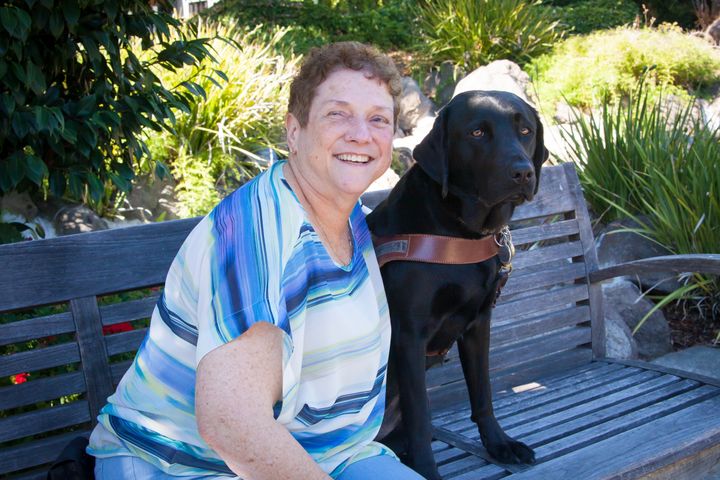The COVID-19 pandemic and consequent physical distancing hit Dorianne Pollack especially hard. As someone who is blind, she has long struggled to navigate a world that doesn’t always recognize, let alone accommodate people with disabilities. If that wasn’t hard enough, this new world, full of makeshift “keep a 6-foot distance from others” and “one-way aisle traffic” signs is nearly impossible to traverse.
If she was struggling, she was sure others with disabilities were too. As a director of the Guide Dogs for the Blind Alumni Association board, she organized a town hall for alumni to gather and discuss life in a pandemic.
“My contact with many other blind or visually impaired people gives me a bird’s eye view (pun intended) into the concerns and celebrations that are unique to my community. Social distancing is a huge concern,” said Pollack, who works in Northern Arizona University’s Disability Resources office as an accessibility analyst.
So, in hopes of reaching her community members and letting them know they are not alone in their struggles, Pollack decided to share her experiences in an op-ed for the Huffington Post. She also spoke to NAU News.
“Humans are social creatures. No one wants to be excluded from community living. This pandemic has forced millions of people to isolate longer than we ever thought possible. People, blind and sighted, are fearful of contracting COVID-19. Over time and through isolation, with simple pleasures gone and plans canceled, we are having to learn to do without and getting more short-tempered and irritable as time goes on. So much change and adjustment to different ways of living is a very difficult task. Yet, we are all trying our best to navigate this new world. The last thing I want to do is unintentionally encroach on someone’s personal space while they stand in line or use public transportation, but being blind makes that difficult. Nowadays, people are so quick to anger and judge. So, why do we resort to chiding others? And how do we fix this?
“Blind and visually impaired people must take an active position in the work of being included, not excluded, from their own communities. There is a responsibility we share to educate, with kindness and communication, those in our communities who may feel threatened by our blindness. Sighted community members must also be willing to hold together that which we all hold dear: our sociability. Remembering to look at a situation before reacting in fear or anger is the responsibility of the collective whole. Holding the door open for someone, letting the gentleman with two items jump ahead of you and your cartful of groceries in line or stopping to help someone find an office number because they look lost are examples of what a little generosity and taking that extra moment to assess a situation can look like. That small gesture can mean the difference between inclusion and marginalization. No one wants to be excluded from or afraid of living in their community. We all want to enjoy living together. So, we must all share the responsibility of caring for one other under all circumstances, especially in times like this.”
Read Pollack’s article, “As A Blind Person, COVID-19 Has Changed My Daily Life In Ways Most People Don’t Consider” published in the Huff Post.

(928) 523-5582 | carly.banks@nau.edu



